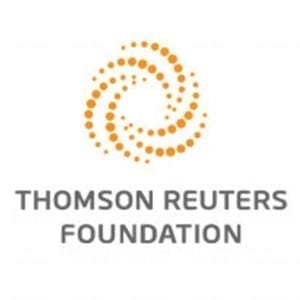Denmark sees potential for blockchain technology in humanitarian aid and said on Thursday it is considering becoming the first donor country to move money using cryptocurrencies.
Blockchain is a ledger system tracking digital information, and among other advantages it can provide digitised contracts to avoid fraudulent land records, or enable faster and safer money transfers to emergency hot spots around the globe by using cryptocurrencies.
A report published by the Danish Foreign Ministry on Thursday, in collaboration with think tank Sustania and blockchain currency platform Coinify, investigates how blockchain technology might solve problems in providing development aid.
If you like this, subscribe here for more stories that Inspire The Future.
“Crypto and crisis is a perfect match, and aid organizations will undeniably be able to respond more quickly using blockchain-based digital money, which arrives at email-speed, safely and transparently,” said Marianne Haahr of Sustania.
Blockchain is still relatively immature and it might take time to develop trust, but some concrete initiatives are being developed. One of Europe’s biggest virtual currency platforms, Coinify, is working on using cryptocurrency payments to scale off-grid renewable energy.
“You will be able to pay with your cryptos directly into a solar panel situated in, for example, an African village and then you would not donate money but electricity,” Coinify’s CEO Mark Hojgaard told Reuters.
Another option could be an online hub where people would donate to single projects like schools, railroads or bridges. So-called smart contracts would ensure that the money went to its intended project.
“The money being donated goes into a programme where you can only use it for bricks and mortar to build a bridge for example. Even if you try to buy a banana it will go back so you can seriously control the money flow,” Hojgaard said.
Blockchain could also be used for digitalised contracts, and some countries like India are already experimenting with blockchain to fight corruption when distributing land rights.
Reporting by Stine Jacobsen, editing by Larry King
If you like this, subscribe here for more stories that Inspire The Future.




































